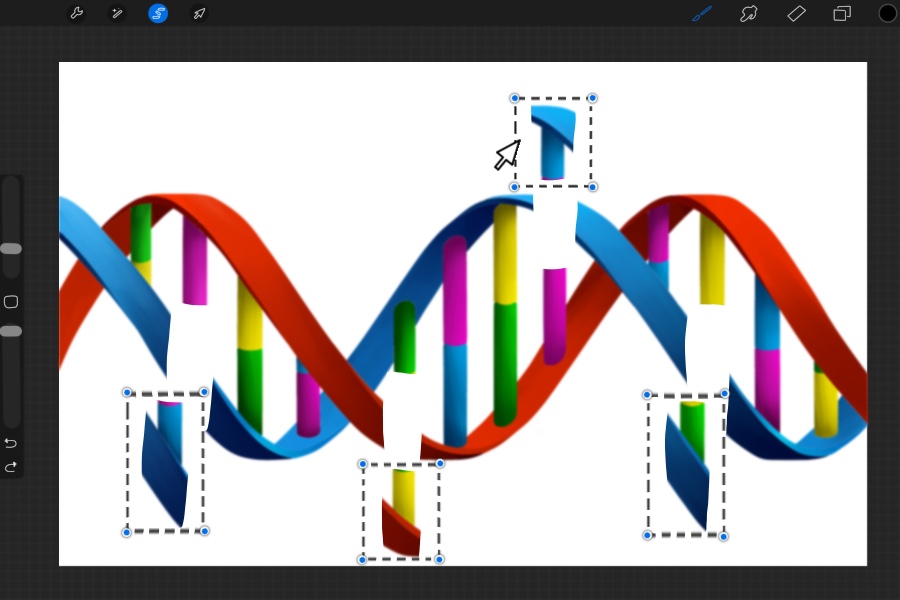
Upcoming event on gene editing to connect students with professors
In this age of rapid scientific advancement, complex ethical questions continue to arise from the possible applications of new discoveries. Two fourth-year students, Alex Robertson and Ben Mallory, decided to start the Bioethics Club at UC Davis to give students a new outlet for discussing these questions.
“We wanted to have networking and to have real resources available to people, but we also wanted to have a place where people can have discussions and have [something] tangible, to leave being more informed about an issue in some way,” said Robertson, a fourth-year global disease biology major and the club’s president and founder.
On Nov. 9 at 8 p.m. in 1003 Giedt Hall, the Bioethics Club will host an event on human gene editing. The event will feature professors spanning many disciplines, including Tina Rulli of the Philosophy Department, Kyle Fink of the Neurology Department and the Stem Cell Program, Mark Yarborough, a dean’s professor of bioethics, Lisa Ikemoto, a Martin Luther King Jr. Professor of Law and Meaghan O’Keefe of the Religious Studies Department.
“At first, our idea was to have a debate, but then we realized that was against the whole concept of our club,” Robertson said. “A debate makes it two-sided. So instead, when we started developing the event, we made it into a round table discussion, more of an open forum […] with the professors.”
Robertson also emphasized that the professors are eager to talk with the students and to help them explore their interests.
“We hope that after the event is over, to have some time for people to come up and talk to both the board members if they’re interestested in getting involved, and also with the professors themselves if they’re interested in what they had to say,” Robertson said.
The event’s open format reflects the club’s goal of creating a place for rich discussions that bring many possible approaches to complex problems. The featured professors are excited about the club’s potential to bring together students from a wide variety of disciplines.
“I think a lot of people studying in STEM fields are particularly interested in the ethical dimensions of those fields,” Yarborough said. “The humanities always have a high concentration of students interested in social justice and other ethical issues. The club can provide opportunities to bring students from across all these disciplines together to explore, learn and work together.”
Mallory, the club’s treasurer and co-founder and a fourth-year biochemistry and molecular biology major, is also enthusiastic about the club’s possible opportunities for students to gain greater appreciation and understanding of opinions on bioethical issues.
“Going into a [science major], you have a set way of thinking that you develop through those classes and those courses, and with humanities and arts and other majors, it’s a completely different way of thinking [about] these topics and these issues,” Mallory said.
Addressing the many dimensions of the ethical issues that arise from new healthcare and medical technologies can be difficult, so opportunities for students to develop these thinking skills can be limited.
“I took the bioethics class with Dr. Rulli, and I noticed how I learned so much [about] different types of controversies surrounding bioethics,” said club secretary Jennifer Nguyen, a third-year neurobiology, physiology and behavior major. “What it allowed was something really discussion-based. I felt like we needed more of that since bioethics involves so many perspectives and viewpoints.”
While some students may have had the opportunity to take Rulli’s class, others may have been exposed bioethics by the cult science-fiction film “GATTACA,” which allowed the concept of systematic genetic discrimination to make a splash in popular culture upon the film’s release in 1997. Even with many people having a general appreciation of why bioethics is important, it is still a field that can be frequently overlooked.
“Ethics is an integral part of doing science that can sometimes be neglected,” said Rulli, who is also the club’s faculty advisor. “I believe that scientists and clinicians should learn to do ethics alongside and as they develop their science rather than ask the ethical questions at the end of the process.”
Bringing together professors with such diverse areas of specialization is the first of many opportunities for the club members to connect with experts in the field and to be exposed to the work they are doing related to bioethics.
“I’m part of an interdisciplinary team of UC Davis faculty who are creating a university-wide bioethics project — The UC Davis Bioethics Academy,” Ikemoto said. “We are working to foster ways of doing science across the disciplines of STEM, humanities, and the social sciences.”
Throughout the year, the club hopes to dive into other timely issues that have emerged from technological advancements, something Fink thinks is an exciting prospect.
“Stem Cells, gene therapy, patient outreach, dissemination of research in the social media world, clinical trial development [would be great future topics],” Fink said.
As the bioethics club establishes itself, there is hope that increased student interest and the growing importance of bioethical thought will help the club thrive as a place for stimulating discourse for years to come.
“All of us, students and faculty — whether in the sciences, arts, or humanities — are going to have to make decisions about the role of science in our lives,” O’Keefe said. “I’m so glad to see students leading the way.”
Written by: Benjamin Porter — features@theaggie.org



